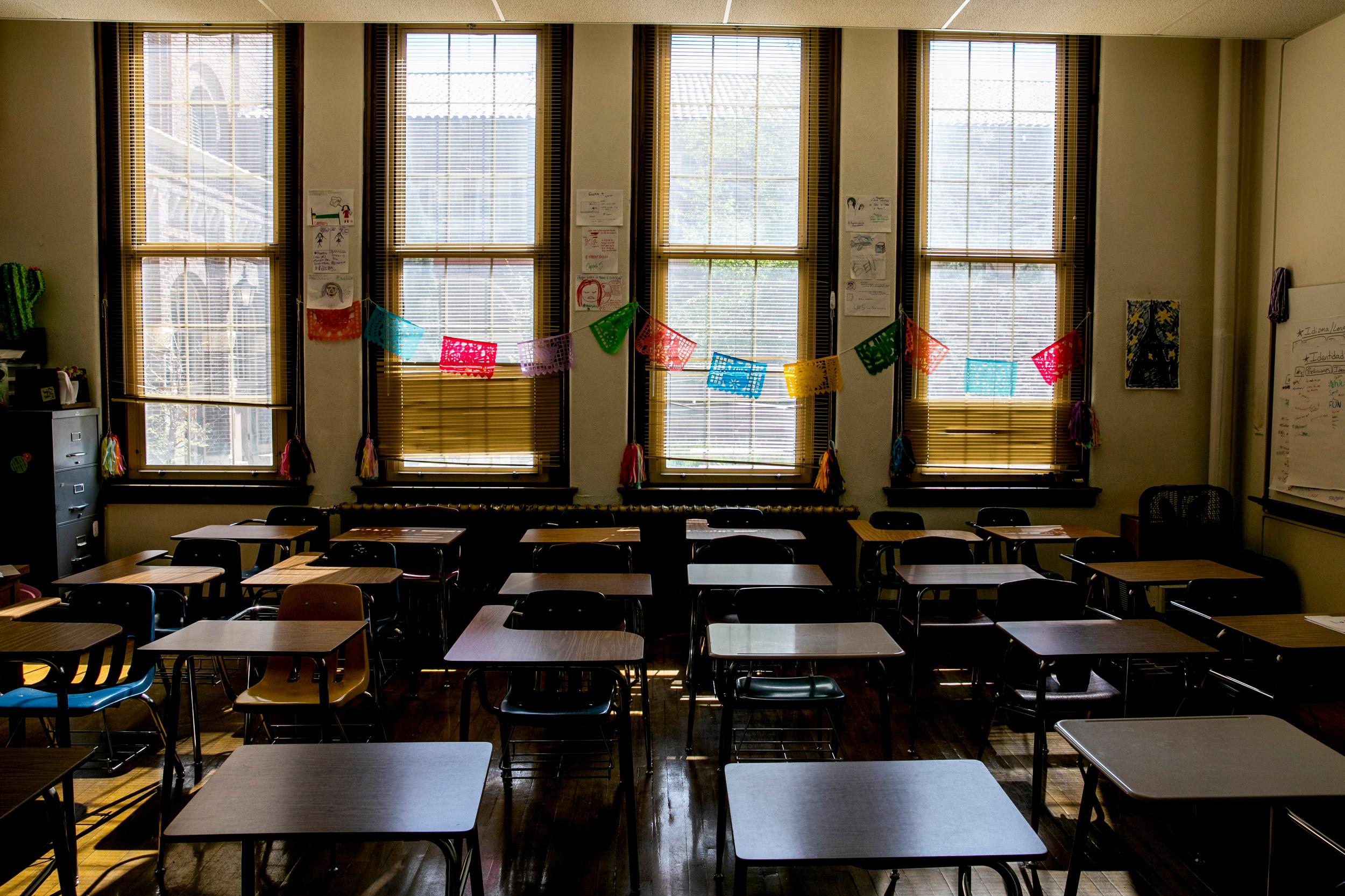
Colorado’s government faces a $3.3 billion shortfall for the fiscal year that begins in July, according to a new state economic forecast.
That means the state’s discretionary spending may have to shrink by 25 percent in the coming year, according to legislative staff — the equivalent of eliminating Colorado's operating budgets for transportation and corrections.
A forecast from Gov. Jared Polis’ administration made similarly dire predictions.
It’s been obvious for weeks that the state stood to lose billions, but Tuesday’s reports detail the damage across practically every front — and they point to impacts that could last years, thanks in part to Colorado’s complex limits on government spending.
“I know that’s a daunting number. I’ll unpack it a little bit,” said chief state economist Kate Watkins in a meeting with the Joint Budget Committee.
With the unemployment rate predicted to reach 10 percent this year, the government will lose out on income taxes, Watkins reported. A collapsing oil market will decimate some local budgets and state funds. Closed businesses won’t pay sales taxes, and commercial property values could erode as they’re reassessed.
Before the crisis, state economists had expected weak growth in government revenues for the year ahead. But the outbreak and lockdown have put Colorado deep in the hole after just a few months.
“This has been a precipitous and alarming decline to state revenue that will have significant implications for the budget,” said Lauren Larson, budget chief for the governor.
Colorado’s unemployment rate could triple to 10.1 percent. In some industries — hospitality, entertainment and recreation — a quarter of all workers have lost their jobs.
The legislative forecast shows that, as a result, income tax collections could decline by about 18 percent from “peak to trough.” That’s similar to the Great Recession, but the decline has arrived with head-spinning speed, and state lawmakers are rushing to cut spending before the next fiscal year begins.
“Overwhelmingly, the reason for the decrease is a reduction in expectations for individual income tax revenue,” said legislative economist Greg Sobetski.
Even tax collections on marijuana — usually a reliable growth industry — could falter as tourism drops, according to the Office of State Budget and Planning.
Other parts of the economy will see a much greater decline. Severance taxes on oil and gas drillers are expected to collapse by nearly 94 percent, affecting both the state and local governments.
“Producers in the Denver-Julesburg Basins have already announced production cuts on the order of tens of thousands of barrels per day,” said economist Meredith Moon.
With revenues plummeting, the state could nearly zero out its general fund by the time the current fiscal year ends on June 30 -- putting it nearly $800 million short of the amount it’s legally required to save. That will only compound next year’s challenges.
Republican state Rep. Kim Ransom asked whether the state could speed its recovery by dropping lockdown restrictions faster.
“How desperate is this hole? Could we climb back out of it if we let businesses reopen tomorrow?” she said.
State staff said the forecast was based on assumptions of a gradual reopening with only limited regional outbreaks and a COVID-19 vaccine within 12 to 18 months. It’s not clear that consumer confidence would return even if businesses reopened, Sobetski said
“Phased reopening will give rise to a recovery throughout the remainder of the calendar year — though ongoing restrictions, health concerns, and uncertainty will constrain growth. Additionally, some business closures and job losses will be permanent, leaving a lasting mark on economic activity,” the forecast warned.
Federal stimulus money could help, but the OSPB forecast warned that the federal CARES Act also could hurt the state's finances, draining more than $400 million over the coming years due to changes in corporate income tax collections."
Lawmakers have only identified a fraction of the cuts they would need under this forecast. The governor’s office has ordered state departments to come up with $229 million of savings for the current fiscal year. Meanwhile, the JBC has identified about $700 million cuts for next year -- but that gets them only a third of the way.
The final plan could bring cuts to services and education, which advocates warn could be especially harmful to people with lower incomes — who already have been disproportionately affected by the outbreak and lockdown.








